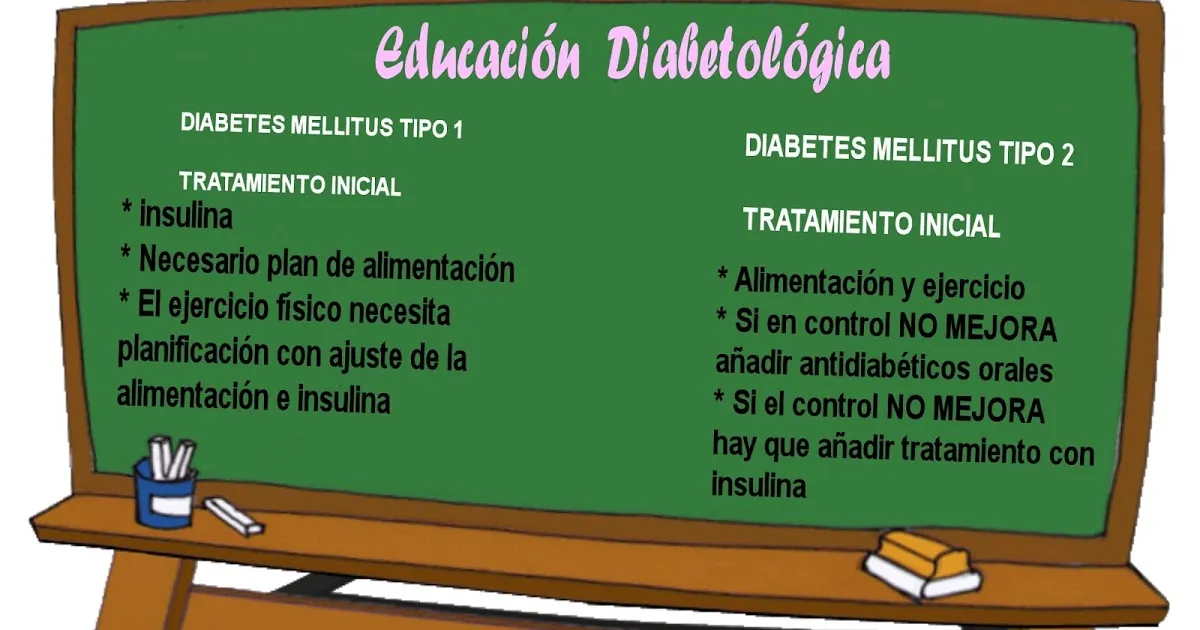Type 2 diabetes is a chronic and progressive disease.This progressive character originates that the treatment has to be increasingly intense to avoid or delay its complications as much as possible.When the diabetics attitude towards their illness is passive and of disregard we must inform them about the serious consequences of the disease.
This attitude changes when the level of information is greater.Therefore, we must encourage diabetological education, with talks with small groups of patients supported by nursing personnel to activate and reaffirm a better compliance with the comprehensive diabetes treatment.
At the same time, the participation of community pharmacists must be encouraged to reinforce those actions.
Thus, the education of the diabetic patient requires an interdisciplinary team constituted by different professionals who work interdependently, who interact, who exchange information systematically and that jointly plan common objectives.
Traditionally, nursing staff has taken the weight of diabetological education, but little by little other professionals such as dietitians, pharmaceuticals, podians or physical education teachers are incorporated, and new figures such as the social worker, the volunteer or the patient appearExpert as a participant in the process.They are expected to integrate the work of educator in their professional practice and that they are an active part of the interdisciplinary team that will serve the patient with diabetes.
Training
In recent years, in the United States with the validation of several scientific societies, a new certificate has been completed, the Board Certified-Advanced Diabetes Manager (BC-ADM), which allows accreditation as an educator in diabetes to nurses and dietitians, afterA trunk and specific formation.To achieve the certificate, continued work in the specialty of two years of experience in education of more than 1,000 hours.The accreditation must be renewed every five years to guarantee the update in knowledge and skills.
Among the functions of the educator are the following: Analysis of the knowledge, skills and behavior of people with diabetes in order to improve them, evaluation of diabetes in the social environment, a patient -centered teaching with individualized education methodsFor each patient, transmitting learning based on problem solving and objectives, the role of patient's self -control in their motivation and knowledge for self -care and prioritizing the importance of a good quality of life.
Multidisciplinary Management
Keep in mind that diabetes is a complicated disease, which requires constant surveillance, knowledge of the disease and support of several health specialists.However, most of the care and control should come from the patient.For this reason, it is considered especially important that people suffering from diabetes know their disease, treatment goals and the way they can contribute to their own care.Treatment guides help keep these objectives in mind and facilitate progress towards a healthy life.
Thus, among the most important points that a person suffering from diabetes must know and carry out are: the diet, the exercise program, the way of taking the medications properly, learning to solve frequent problems, achieve control of the levelsof glucose and prevent chronic complications, since taking care of these aspects, the quality of life of the diabetic patient can be improved.
With respect to the pharmacological issue, recommendations should focus on the patient taking theirMedications at the established time and in quantity, and in establishing a schedule to take your medications.
In this context, it must be remembered that a complication that often arises in the diabetic patient is the lack of adhesion to treatment.Sometimes it is a consequence of involuntary acts such as oblivion or confusion, but the patient also stops taking the medication for believing it unnecessary, for economic aspects or for the perception of improvement that makes them consider unnecessary to continue with the treatment.
Patients make decisions about their medication based on their own knowledge of diabetes, so the cultural level of the patient greatly influences adherence to treatment.The patient's perception of the need to take medication will influence his right decision.
To the type 2 diabetic groups that must be paid more are the elderly, pregnant women and young patients with several risk factors.The guidelines to follow with these profiles of diabetic patients are the realization of a quarterly analytical, evaluating glycosylated hemoglobin, control of compliance with medication, derivation to the endocrine/internal medicine when they are not controlled in primary school and clinical interviews with character.quarterly with the diabetic patient or his caregiver to assess whether the hygienic-dietary measures follow.
Aspects to improve
As for the improvement lines, the first thing to be aware is of the high welfare pressure in primary, which is given by aging and the large number of patients who are treated in the consultations.The implementation of the electronic recipe, the digital history and the spontaneous visit to the nursing staff by the patient are assuming an improvement in the decrease in the assistance load of the doctors and an improvement in the control of chronic diseases and, especially, of cardiomethabolic.
Thus, it is necessary to improve in the early detection of the diabetic patient, in the interventions that help a good monitoring and fulfillment of the prescribed treatment, in the simplification in the positiveNursing in the approach and monitoring of the disease, in the nursing consultation is an ideal environment to obtain information on the fears or reluctance of the patients, in comprehensive diabetological education, both for the patient and for their closest family environment anddirect and to establish attorney and motivating lifestyle tips and plans with good preparation and training techniques.
For the elaboration of this article, the collaboration of the general doctors José Manuel Montero Novoa, Vicente Salgado Nieto, Juan Gago Prada, Manuel Rey Rionegro, Rafael Rodríguez González and María José González Feijoo, of the Health Center of Ribadavia andFamily doctors Antonio Silvelo Rodríguez, Manuel López Lens, Alfonso Rodríguez Fernández, María José Martínez Fiallega, Lourdes Linares Regueira and Ana Flora Guerra España, from the Ribadeo Health Center.


